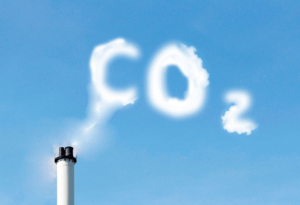

On August 9, 2021, the United Nations issued a report based on more than 14,000 studies and approved by 195 governments indicating that the Earth’s climate is changing more rapidly than previously predicted—with some unavoidable dire consequences for the future—and unequivocally linking climate change to human activity. The report warns that “many changes in the climate system become larger in direct relation to increasing global warming. They include increases in the frequency and intensity of hot extremes, marine heatwaves, and heavy precipitation, agricultural and ecological droughts in some regions, and proportion of intense tropical cyclones, as well as reductions in Arctic Sea ice, snow cover and permafrost.”
It sounds alarming because it is. But is anybody really listening? Some industries and companies are talking, making commitments, and taking action. These activities aren’t purely altruistic. They’re linked to the Environmental Social and Governance (ESG) evolution in business thinking, driven by economic factors and the reality that climate change affects us all.
Brands and Causes

Our Vision: Brands can leverage their positioning and creativity to draw attention to some of the world’s most important ESG challenges. A creative campaign has the potential to generate more positive impact than any single speech, study, or annual report.
Our reading list: NeA Belgian brewery launched a limited edition beer with an unusual taste to warn drinkers about the impacts of climate change: “The future of beer is here. And it tastes horrible.” The UN Environmental Program (UNEP), The Ocean Agency, and Adobe joined forces to work on an Ocean League campaign involving creativity and positive changes to protect the oceans.
Sustainable Finance

Our vision: Continuous innovation among financial institutions and in financial practices is critical to ramping up our collective response to climate change. Capital markets continue to favor companies that demonstrate ESG commitment and results. Even disruptive cryptocurrency players have turned their focus to resource consumption and sustainability issues.
Our Reading List: Moody’s ESG Solutions launched the Global Compact Screening tool to assist investors in evaluating business commitments to the United Nations Global Compact (UNGC) principles. The Crypto Climate Accord focuses on solutions for the decarbonization of the cryptocurrency industry. The National Law Review provides guidance on credit mechanisms used to encourage sustainable habits.
Corporate Sustainability

Our vision: Many companies are facing growing pressure to match their promises to drastically reduce carbon emissions with quantifiable deeds. Financial giant BlackRock recently committed to achieving “net zero emissions across [its] entire assets under management by 2050.” Other companies in the agriculture and power-hungry tech sector have struggled to meet their commitments.
Our reading list: A recent Science Based Targets initiative (SBTi) study found that 338 large companies from across the globe, such as PepsiCo, BMW, and Bayer, collectively reduced their emissions 25% between 2015 and 2019. The Yale Center for Business and the Environment produced a report highlighting nine infographics that illustrate how S&P 100 companies can attain net zero carbon emissions.
Deep Dive
The Economist will host a webinar titled “Closing the Loop for the Climate: Harnessing the Circular Economy to Reduce Greenhouse Gas Emissions.”
The event will bring together circular economy and climate change experts to discuss the role of the circular economy in reducing greenhouse gas emissions.
Let’s talk!
Brian Burlingame, CEO
+1 (305) 860-1000
www.jeffreygroup.com
socialimpact@jeffreygroup.com

